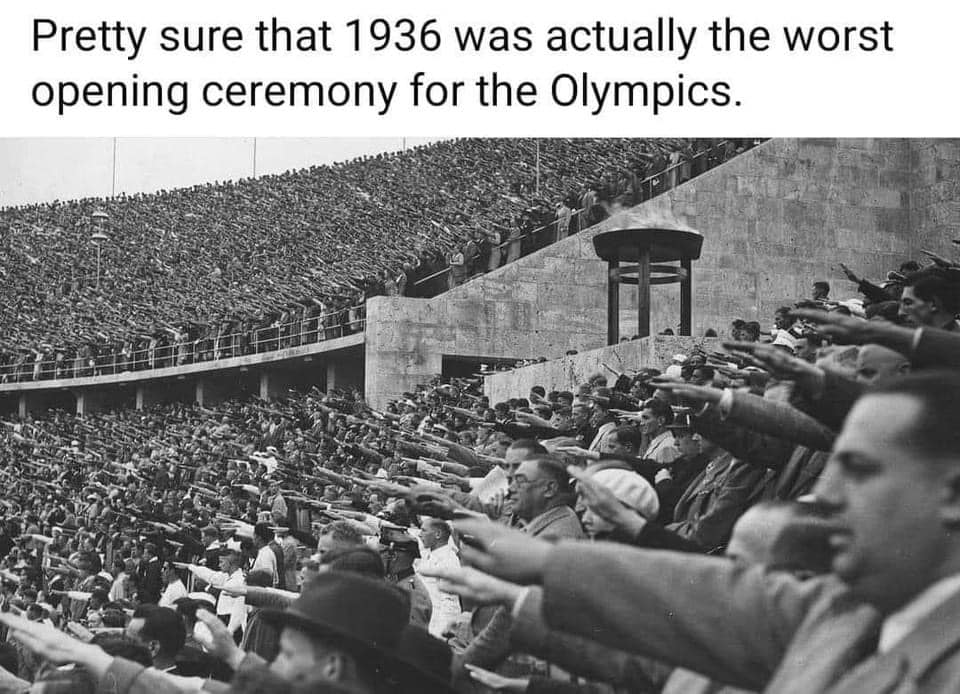this post was submitted on 30 Jul 2024
711 points (98.8% liked)
HistoryPorn
5057 readers
287 users here now
If you would like to become a mod in this community, kindly PM the mod.
Relive the Past in Jaw-Dropping Detail!
HistoryPorn is for photographs (or, if it can be found, film) of the past, recent or distant! Give us a little snapshot of history!
Rules
- Be respectful and inclusive.
- No harassment, hate speech, or trolling.
- Engage in constructive discussions.
- Share relevant content.
- Follow guidelines and moderators' instructions.
- Use appropriate language and tone.
- Report violations.
- Foster a continuous learning environment.
- No genocide or atrocity denialism.
Pictures of old artifacts and museum pieces should go to History Artifacts
Illustrations and paintings should go to History Drawings
Related Communities:
founded 2 years ago
MODERATORS
you are viewing a single comment's thread
view the rest of the comments
view the rest of the comments

There's an interesting debate on the amount of Nazi leaders, government officials and capitalists that were allowed to stay in their positions of power in western Germany after the Nazi were defeated. As a Spanish person, I myself sadly see the legacy of fascism in the Spanish institutions, and believe that the transition to democracy was way, way, way too lenient with fascists and fascism. That said, it's useful to refer to countries whose systems of governance have changed drastically over time, by the system of the time you're referring to, it's not exclusive to Germany.
I'm not so convinced you can even talk about a "transition". Fascism and its nazi derivation, brewed and rised within democratic countries. And, lo and behold, they are still among us in our democracies so much so that they are ruling a number of countries.
Fascist Spain is Spain. Fascist Italy is Italy. Fascist Japan is Japan and Nazi Germany is as clearly just Germany.
Denying that is dangerous and doesn't give you the tools, as a country, to change.
Again, I agree that the fascists weren't properly tried for their crimes and removed from the institutions (they were in east-germany). I'm just saying that there's a consensus nowadays about using those terms to refer to countries that changed their regime at least in theory. If you want to make the argument to change that consensus, you'd be better understood explaining from the start your issues with the terms because of the lack of renovation of people in power and power structures, rather than just saying "there's no other Germany".
Considering the context I priorityzed brevity. I'll make a note and include that as a chapter in my magnus opum.